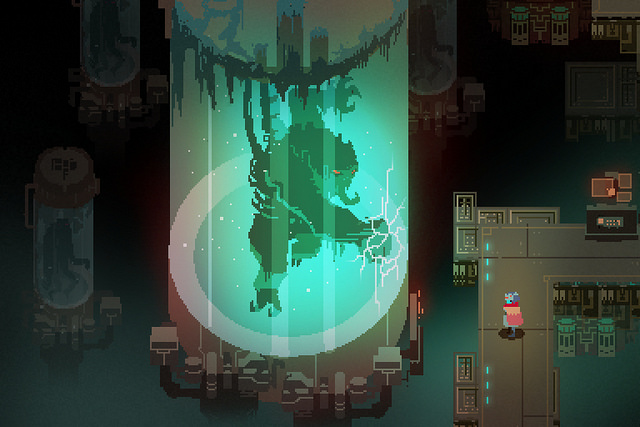Microsoft used to be "kind of d*cks" to indies, but not anymore dev says
Hyper Light Drifter dev says a lot has changed since the Xbox 360 days; Microsoft now "much more open" and friendly, Teddy Diefenbach explains.

Microsoft used to be "kind of d*cks" to independent developers, but not anymore. That's according to Hyper Light Drifter developer Heart Machine's Teddy Diefenbach, who said in a new interview that much has changed--for the better--since the Xbox 360 days.
"They were kind of dicks about it back in the day," Diefenbach told Eurogamer about Microsoft's former relationship with indies. But with the arrival of Microsoft's Xbox One indie program ID@Xbox, developer relations have improved substantially, he said.
"It's friendly, it's got the same terms as everybody else, basically," Diefenbach said. "It's much more open than it ever was. It's not like it was in the 360 days."
Yesterday, Hyper Light Drifter creator Alex Preston said in a separate media interview that Microsoft "used to be a**holes" about indie game development.
Diefenbach also addressed the differences between Microsoft and Sony as it relates to indie publishing agreements. In short, he said there aren't many.
"As far as the terms go, they're relatively similar," he said. "The biggest difference between Sony and Microsoft was that Sony has had a large push behind gathering indies and they reached out to us initially, even when the Kickstarter was still going, and they have a bigger team behind it all. Microsoft has been a bit slower to come to the table, but now they're coming around, so it seems like they're going to be on much more even ground."
One prickly issue that remains with Microsoft ID@Xbox program is its controversial "launch parity" clause that requires games release the same day (or earlier) on Xbox One as they do on competing platforms like the PC or PlayStation 4. This would thereby eliminate the possibility of a timed-exclusive for a competing system. It also can be problematic for developers, which might need to bring on more staff or allocate more resources to meet the requirement.
Asked by Eurogamer about the "launch parity" clause, ID@Xbox head Chris Charla towed the company line, saying he can't discuss publishing policies publicly. Instead, these agreements are reviewed on a case-by-case basis.
Got a news tip or want to contact us directly? Email news@gamespot.com
Join the conversation